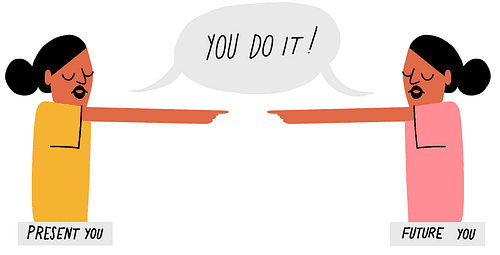Reframing the experience so it is no longer a threat to freedom is one way we can try to avoid psychological reactance. We can try to remember that just because someone suggests something to us or asks us to do something, they are not necessarily trying to control us. Scientists are working on discovering other ways to avoid or reduce psychological reactance. One study found that telling participants that “they are free to decide for themselves what is good for them” after being told to do a specific health behavior, like flossing their teeth or wearing sunscreen, was able to reduce reactance (Bessarabova, Fink, & Turner, 2013; Miller et al., 2007). Other studies have found that inducing empathy or asking the threatened person to take the perspective of the person telling them what to do can help reduce reactance (Shen, 2010; Steindl & Jonas, 2012).
38
194 reads
The idea is part of this collection:
Learn more about personaldevelopment with this collection
How to adapt to different speaking situations
How to engage with an audience
How to use body language effectively
Related collections
Similar ideas
Why we do the opposite of what we are supposed to do
We hate the feeling of being bossed around, even when doing as we’re told is good for us.
Psychological reactance is our knee-jerk negative reaction to being told what to do.
Based on research, almost everyone has this mental reflex against being told what to do, esp...
Change begins with your view
With an awareness about psychological reactance, you have the power to recognize and disarm it.
Instead of flaking on commitments because of a knee-jerk feeling, you can change your perspective on the situation.
By changing the dialogue, you empower yourself. Now you’re in charge. Yo...
Psychological safety
In 2012, Google found that psychological safety was the most important to making a team succeed, not the smartest teams or the ones who socialized outside the office. Psychological safety is a shared belief that the team is safe for interpersonal risk-taking
Read & Learn
20x Faster
without
deepstash
with
deepstash
with
deepstash
Personalized microlearning
—
100+ Learning Journeys
—
Access to 200,000+ ideas
—
Access to the mobile app
—
Unlimited idea saving
—
—
Unlimited history
—
—
Unlimited listening to ideas
—
—
Downloading & offline access
—
—
Supercharge your mind with one idea per day
Enter your email and spend 1 minute every day to learn something new.
I agree to receive email updates
